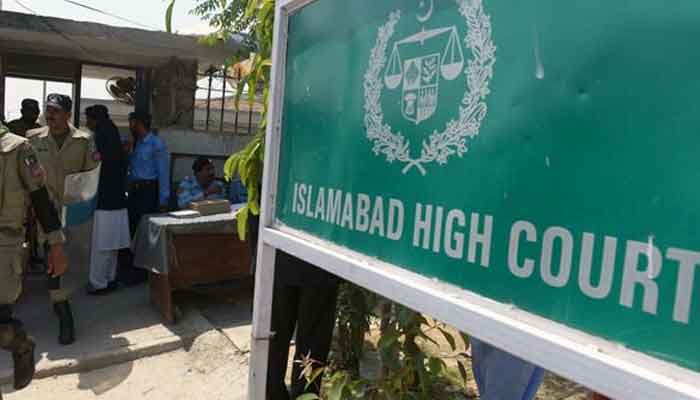PECA ordinance declared unconstitutional by IHC
Decision comes as a major victory for media and rights activists
ISLAMABAD: In a major victory for the media and rights activists, the Islamabad High Court (IHC) on Friday declared the Prevention of Electronic Crimes (Amendment) Ordinance, 2022 (PECA) "unconstitutional" and directed the federal government to probe the abuse of the law and submit a report in this regard within 30 days.
President Dr Arif Alvi had promulgated the ordinance in February to amend the PECA as the government made attempts to curb "fake news". However, the government’s move, according to experts and journalists, was aimed at silencing the dissent on social media and controlling the media.
The media bodies had challenged the “draconian law” in the IHC following countrywide protests.
The journalist associations, including the Pakistan Broadcasters Association (PBA), the All Pakistan Newspapers Society (APNS), the Council of Pakistan Newspaper Editors (CPNE), the Association of Electronic Media Editors and News Directors (AEMEND) and some senior journalists of the country, had filed the petition through senior lawyer Munir A Malik.
The four-page order of the IHC issued today stated that free speech — protected under Article 19 — and the right to receive information under Article 19-A of the Constitution is essential for the development, progress, and prosperity of a society, adding that suppression thereof is unconstitutional and contrary to democratic values.
“The criminalisation of defamation, protection of individual reputations through arrest and imprisonment and the resultant chilling effect violates the letter of the Constitution and the invalidity thereof is beyond a reasonable doubt,” said the order authored by Chief Justice Athar Minallah.
The court ruled that the ordinance was promulgated in derogation of the Constitution and the fundamental rights guaranteed thereunder, particularly Articles 9, 14, 19 and 19-A.
“The jurisdictional preconditions were also not in existence,” it further said.
“The Prevention of Electronic Crimes (Amendment) Ordinance, 2022, and promulgation thereof is declared as unconstitutional, invalid beyond reasonable doubt and it is, therefore, struck down.”
The offence under section 20 of the Prevention of Electronic Crimes Act, 2016 to the extent of the expression “or harms the reputation” and the punishment thereof is unconstitutional, invalid beyond reasonable doubt and is, therefore, struck down.
The court also quashed the proceedings against the petitioners.
“The Federal Government is expected to review the defamation laws, particularly the Defamation Ordinance, 2002 and thereafter propose appropriate legislation to the Majlis-e-Shoora (Parliament) for making its implementation effective,” the court order stated.
CJ Athar Minallah also directed the Interior Ministry to probe the conduct of the officials of the Cyber Crime Wing of the Federal Investigation Agency, which had led to widespread abuse of powers and the consequent grave violations of the fundamental rights of the citizens.
The secretary has been ordered to submit the report within thirty days.
-
Security forces gun down 30 terrorists in multiple IBOs in KP: ISPR
-
MQM-P calls for new province in Sindh
-
US report validates Pakistan military edge over India: PM
-
Banned TTP poses serious threat to Pakistan security: UNSC panel
-
CM Afridi clarifies remarks on by-poll after ECP requests army deployment
-
Dubai sees 3.2m Pakistani passengers in 2025 as airport sets new milestone
-
Security forces kill 23 Indian proxy terrorists in KP's Kurram
-
Pakistan to construct island to boost oil exploration: report












